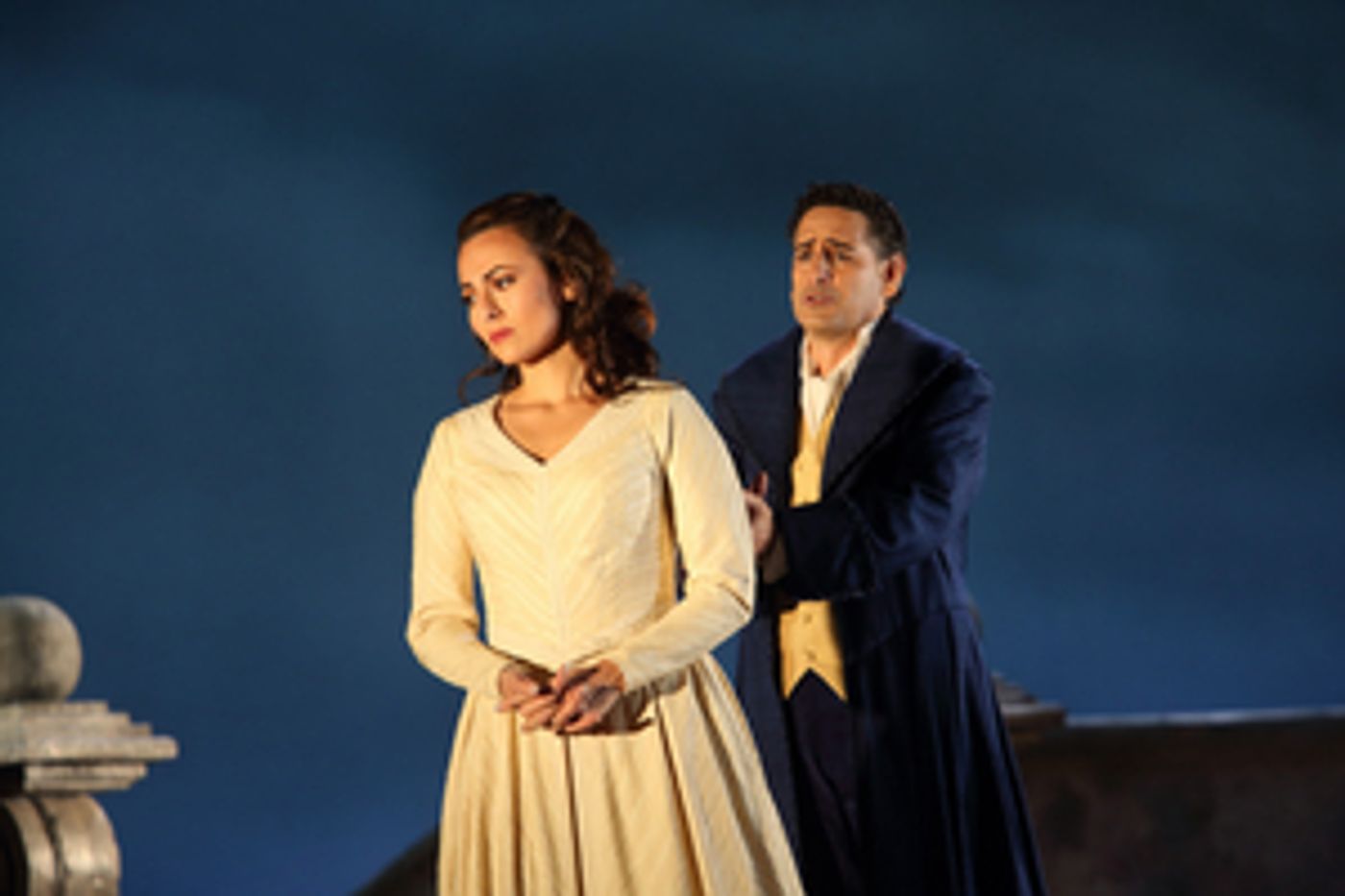Review: WERTHER, Royal Opera House

![]() Fashions in love (and lovers) swing as wildly as hemlines between the centuries. Massenet's Werther - brooding, poetic, Romantic to a fault - is pure 19th century, his heart beating to the fluttering pulse of lyric couplets.
Fashions in love (and lovers) swing as wildly as hemlines between the centuries. Massenet's Werther - brooding, poetic, Romantic to a fault - is pure 19th century, his heart beating to the fluttering pulse of lyric couplets.
He translates poorly into today's more pragmatic world, but - thanks to Charles Edwards' handsome designs - his ill-fated passion for married Charlotte returns to the Royal Opera with plenty of nostalgic appeal. Combine, or rather collide, that with conductor Edward Gardner's technicolour, widescreen modernity, and the impact of the latest revival of this company stalwart is pretty powerful.
First seen in 2004, Benoit Jacquot's production still does the business three revivals later. Its skill lies largely in keeping things simple, preserving the 18th-century setting of Goethe's original, and allowing Edwards' stage pictures and a strong cast to propel us from tentative romance to tragedy: beautiful people loving and dying in equally beautiful surroundings.
Massenet's score may glance towards Wagner, but keeps its feet firmly in France. For every surge of brass or solo saxophone, hovering like a musical raven over the texture, there are many more moments of light-footed delicacy and melodies of disarming simplicity. It's these that Gardner's tectonic approach sacrifices, favouring the bolder colours and weightier emotional gestures, sometimes at the expense of the stage. But if there's less nuance than Pappano gave us in 2016, there's also a roughness that frays the edges of this prissy tale into appealing less-than-perfection.
The cast is the big draw here. Juan Diego Florez sings the title role for the first time in the UK opposite American mezzo Isabel Leonard as Charlotte. They're well-matched, finding that crucial emotional charge previous pairings (memorably DiDonato and Grigolo) have lacked. If it's hard to believe the swaggering Florez as lovelorn Werther, he gives it his all. Shoulders hunched and back slumped, his poet is a man broken by infatuation, caught between painful silence and unstoppable outpourings. His "Pourquoi me reveiller" rode Gardner's ardent accompaniment, ringing out bright and urgent.
It's Leonard, though, in this overdue house debut, who anchors the action. Hers is a fallible, youthful Charlotte - flattered by attention, playful right up until truth and duty reassert themselves and she must reject Werther for the reliable Albert. Dark and thickly painted throughout the range, hers is an attractive voice, flowering into full bloom in "Va! Laisse couler mes larmes" (exquisitely framed by Edwards' Hammershoi tribute of an interior). And while the duty-bound Charlotte gives her less to get her teeth into dramatically than the Met's recent Carmelites, this is still a fine performance.
Exciting young soprano Heather Engebretson returns to the production as Sophie, the conflicted teenager with a woman's voice (a recent Mimi in Berlin suggests that bigger things are to come), and Jacques Imbrailo is luxury casting as Charlotte's stolid husband Albert, albeit sitting slightly under the note on opening night. Jette Parker Young Artist Michael Mofidian again impresses in the cameo role of Johann, while Alastair Miles catches the well-intentioned but feckless geniality of The Bailli.
This is as strong an outing as we've seen for this piece. Sacrificing tidiness for passion, Gardner and his cast give us Werther for the 13 Reasons Why generation: angry, hormonal and undeniably romantic.
Werther at the Royal Opera House until 5 October
Reader Reviews
Videos

